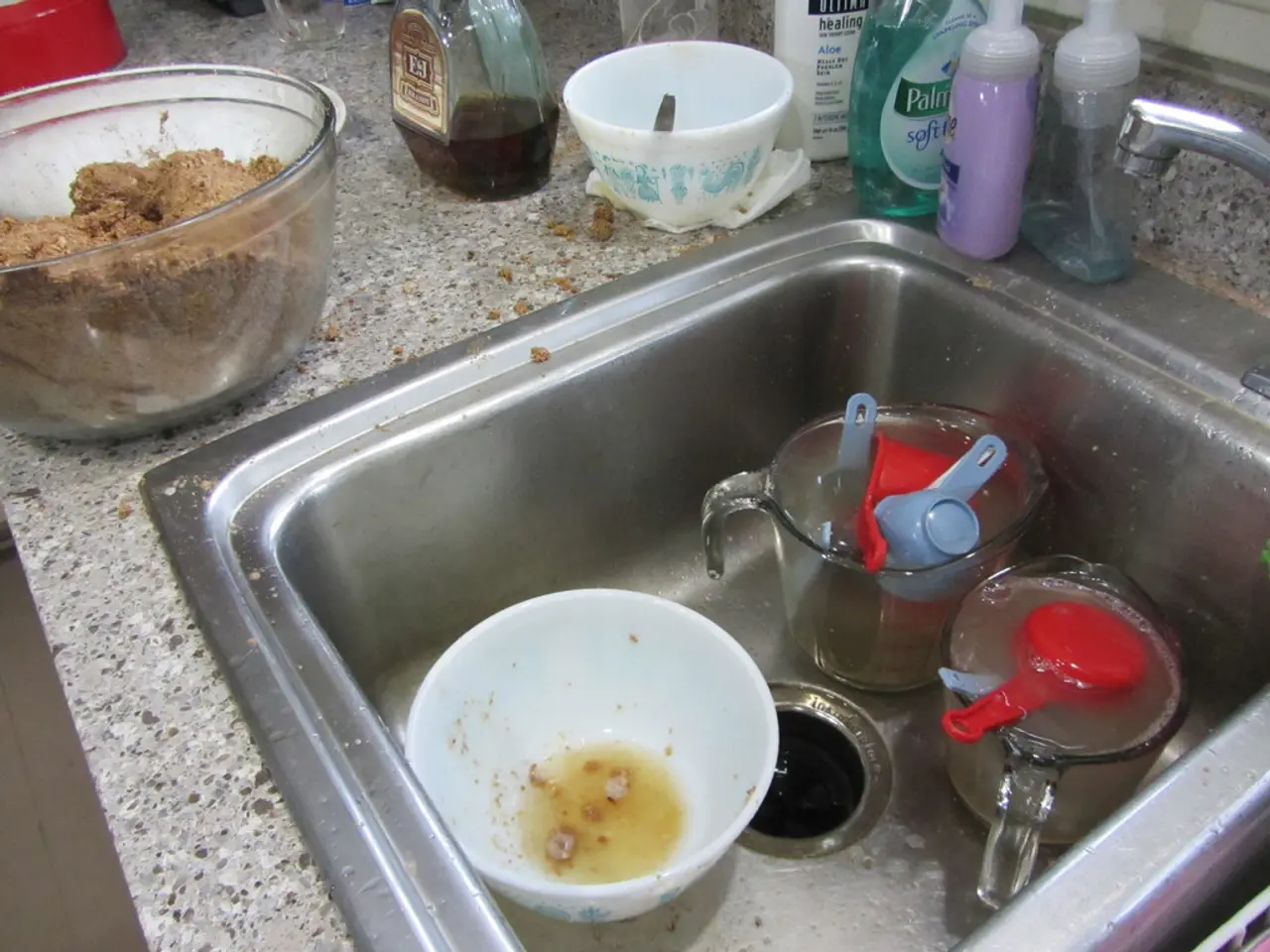Is Extensive Cleanliness Potentially Detrimental to Your Immune Response?
In the midst of the ongoing COVID-19 pandemic, a rapid consumption of soap, disinfectant wipes, and hand sanitizers has become the norm. However, there is an ongoing debate surrounding the role of personal hygiene and its potential impact on the immune system.
Contrary to popular belief, there is no scientific evidence that excessively increased hygiene practices during the COVID-19 pandemic have weakened human immune systems. Health experts and fact-checking sources affirm that protective measures like hand washing, surface cleaning, and mask-wearing do not weaken immunity [2].
The widely circulated idea that wearing masks or frequent hand hygiene could impair immune function is debunked by authoritative sources. The immune system remains robust regardless of these interventions during the pandemic [2].
Infection control guidelines recommend routine cleaning of surfaces and personal hygiene to reduce transmission risks, but these practices do not diminish the immune system’s ability to respond to pathogens [1][3]. While COVID-19 caused immune dysregulation in infected individuals due to viral mechanisms like cytokine storms, this is related to the infection itself—not hygiene or cleaning habits [5].
It's important to note that the "hygiene hypothesis" primarily relates to childhood allergy risk and environmental microbial exposure rather than short-term hygiene practices during a pandemic. Therefore, it should not be conflated with pandemic-related infection control behaviors.
In summary, increased hygiene during COVID-19 (including handwashing, disinfecting, and mask use) does not weaken the immune system [2]. Proper cleaning and hygiene prevent disease spread without impairing immunity [1][3]. Immune dysfunction during COVID-19 infection is caused by the virus, not hygiene measures [5].
The Centers for Disease Control and Prevention (CDC) also recommends regularly cleaning frequently touched surfaces in the household, such as doorknobs, light switches, counter tops and faucets. They advise washing hands with soap and water after being in public places or after blowing nose, coughing or sneezing. If soap and water aren’t available, use a hand sanitizer made with at least 60% alcohol [4].
James Fernandez, MD, PhD, an allergist and immunologist, states there is no scientific evidence to suggest temporary increased cleaning is dangerous to immune health [6]. He adds that washing and sanitizing hands a lot can leave skin dry or cracked, so a good moisturizing lotion should be added to hand-washing routine.
In light of the above, concerns that pandemic hygiene protocols have compromised immunity lack scientific support. It's crucial to maintain good hygiene practices to prevent the spread of COVID-19, but rest assured that these practices do not impair your immune system.
In addition to hygiene, other factors such as regular exercise, a well-rounded diet, adequate sleep, and managing stress can contribute to a healthy immune system. Smoking and excessive drinking can weaken the immune system, so it's important to avoid these habits [7].
References:
[1] World Health Organization. (2020). WHO COVID-19 Q&A. Retrieved from https://www.who.int/news-room/q-a-detail/q-a-coronaviruses
[2] World Health Organization. (2020). Myth busters: COVID-19. Retrieved from https://www.who.int/emergencies/diseases/novel-coronavirus-2019/advice-for-public/myth-busters
[3] Centers for Disease Control and Prevention. (2020). Cleaning and Disinfection for U.S. Households. Retrieved from https://www.cdc.gov/coronavirus/2019-ncov/prevent-getting-sick/cleaning-disinfection.html
[4] Centers for Disease Control and Prevention. (2020). Handwashing. Retrieved from https://www.cdc.gov/handwashing/index.html
[5] National Institute of Allergy and Infectious Diseases. (2020). Coronavirus Disease 2019 (COVID-19). Retrieved from https://www.niaid.nih.gov/diseases-conditions/coronavirus-disease-2019-covid-19
[6] Fernandez, J. (2020). Misinformation about COVID-19 and the immune system. Retrieved from https://www.webmd.com/lung/news/20200327/misinformation-about-covid-19-and-the-immune-system
[7] National Institutes of Health. (2020). Coronavirus (COVID-19) Treatment. Retrieved from https://www.nih.gov/coronavirus/covid-19-treatment
- Regular exercise, a well-rounded diet, adequate sleep, and managing stress can also contribute to a healthy immune system, as stated by the National Institutes of Health.
- Smoking and excessive drinking can weaken the immune system, hence it's important to avoid these habits for overall health, as mentioned in the same source.
- Science and fact-checking resources, like the World Health Organization and the Centers for Disease Control and Prevention, affirm that hand washing, surface cleaning, and mask-wearing do not weaken immunity, contrary to some popular beliefs.
- Engaging in good hygiene practices during the COVID-19 pandemic (handwashing, disinfecting, and mask use) does not weaken the immune system, as concluded from various authoritative sources.




